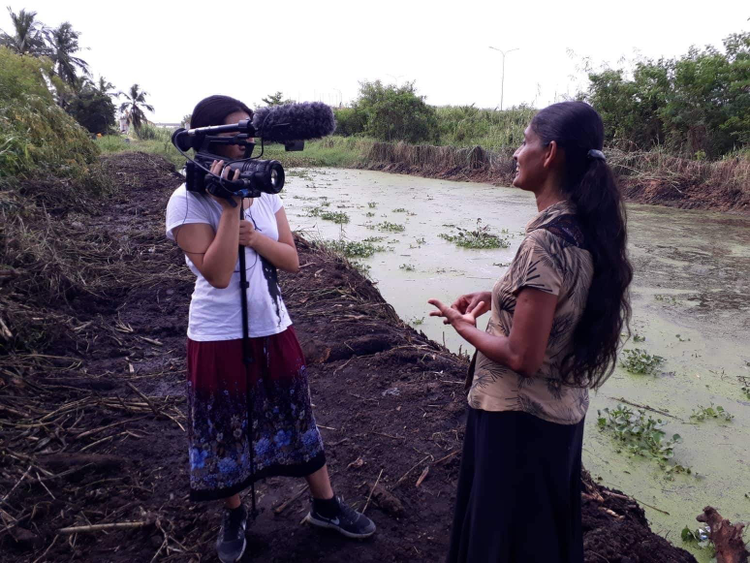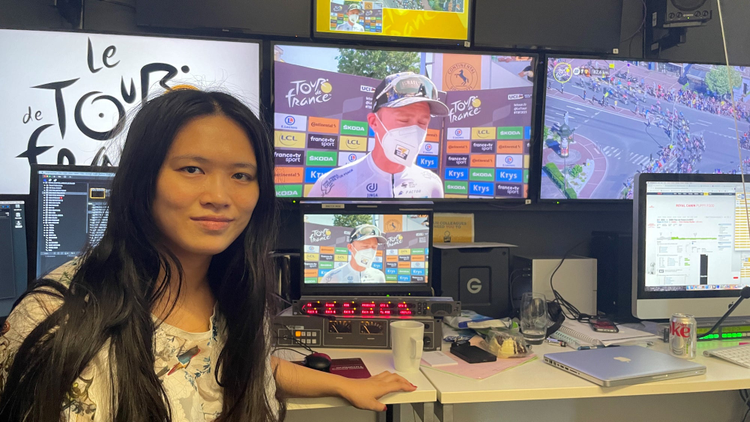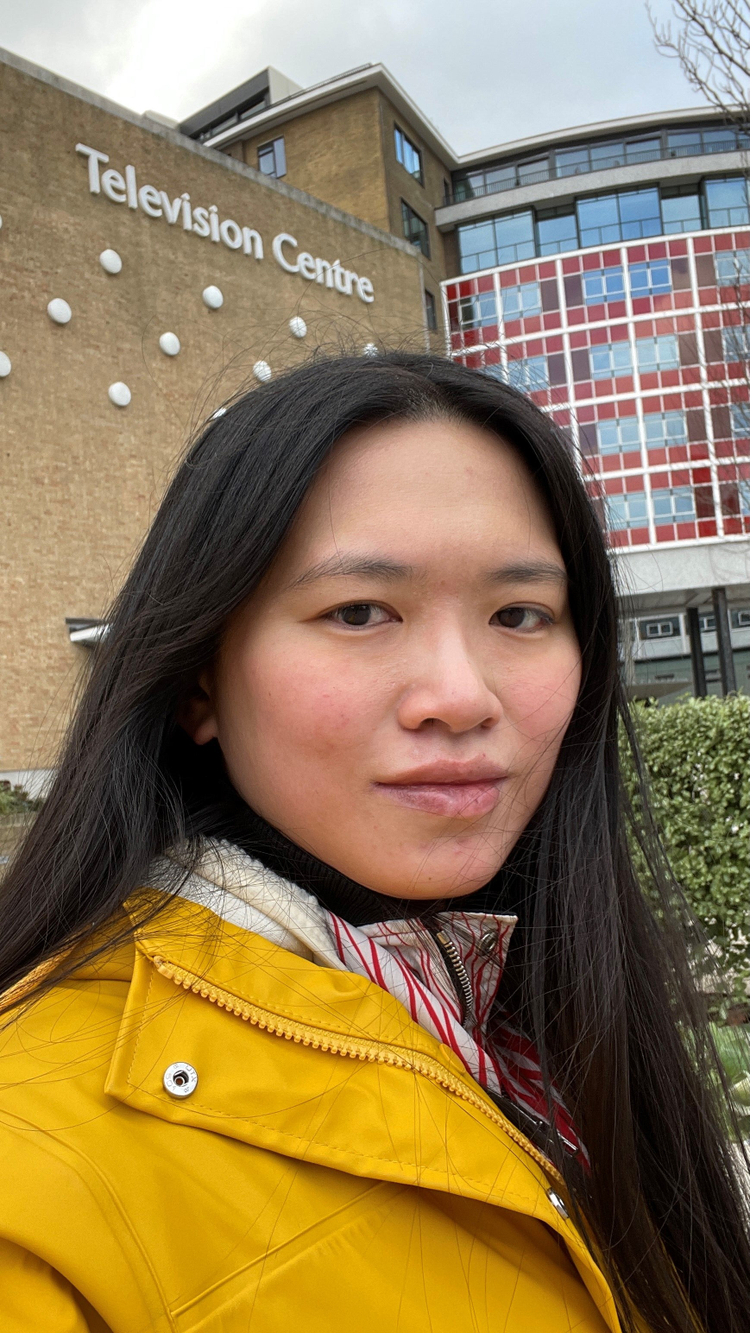Mei Leng Yew explains how audiences are demanding more diverse voices

Mei Leng Yew
From learning to edit with Sky, the BBC and UEFA, to creating documentaries for The Economist, development assistant producer Mei Leng Yew’s decade in the industry has been full of personal growth. She shares her journey, and explains why the UK’s creative industries must embrace diversity to speak to a global audience.
For Yew, it’s all about the narrative: “I just love being involved in stories; reading stories; developing stories.” In documentaries, that instinct has found the perfect outlet, as she sifts through her research to find the relatable kernel of truth. “I like learning a new thing every day; you get completely immersed in other people’s lives, the things they care about, the world they live in. It’s just fascinating.”
An unlikely career path
In fact, Yew’s own journey to this point is no less intriguing. Born in London to Malaysian parents, it may not have seemed that Yew’s future lay in production: “I wasn’t even really allowed to watch that much TV when I was a kid.”
Although they have always been supportive, Yew describes her parents as “quite traditional; they put a lot of value in education, and definitely wanted me to go down a more academic or traditional route.” As for her job making documentaries for The Economist: “I don’t think my parents really understand what a development assistant producer does. But to be fair, thinking of ideas all day is a bit of an odd job.”
“There's still times I think, ‘how is this a real job?’ It's ridiculous… but awesome.”
Mei Leng Yew, Development Assistant Producer
It wasn’t one that was immediately obvious to Yew either; “I didn’t really know that you could have a creative career until I saw posts online from training schemes like the MAMA Youth Project.” However, once that realisation dawned, the genie wasn’t going back in the bottle. An initial position as a trainee editor on the scheme for diverse young people led to six week’s work experience at Sky, and then on to a year and a half on the job out at Isleworth in West London. “I loved working at Sky. It was the kind of place where you can be inexperienced and new and fresh, and people are willing to share their knowledge and take you under their wing.”
Putting the pieces together
Learning to edit was something of a revelation for Yew; “You get all the pieces separately and bring them together like a jigsaw puzzle. You can make an ugly jigsaw or a one that’s beautiful and makes people cry.” Developing her skills, both technical and narrative, saw her secure roles at UEFA and the BBC, always keen to progress. “When you’re learning on the job, it’s like you’re thrown in at the deep end and then it’s sink or swim. I probably learnt more about Adobe Premiere Pro in my first six months at UEFA compared to everything else later on.”

Mei Leng Yew
Now, working on current affairs across topics ranging from climate change to meritocracies and US politics, her enthusiasm is undimmed: “It’s great to have a job where you’re being challenged every day, I’ve been in the industry almost 10 years and there’s still times that I just think, ‘how is this a real job?’ It’s ridiculous, but awesome.”
It could all so easily have been very different. As Yew tells it, it was a random tweet from MAMA Youth Project that led to her finding an in. “Without them I don’t think I would have gotten into the industry to be honest, until you’re part of that circle it’s a completely closed bubble.” From the outside, even getting to grips with the creative industries is a challenge. “It’s so hard to break into an industry when you don’t know the industry exists.”
“We're now in a time where audiences are keen to hear different voices.”
Mei Leng Yew, Development Assistant Producer
Raising awareness
The result, unsurprisingly, is that many communities are under-represented. “The industry is not diverse at all. In a room of 50 people there’s probably one other person of colour. Most that do make it will have come via schemes like MAMA Youth or Creative Access.”
Also crucial to Yew’s journey was her time at Sky: “The support they gave me was immense. Including being assigned a mentor who was also a person of colour.” Having someone to help her navigate the industry, and prepare for job interviews was invaluable, but Yew is clear that there is still the need for a more systematic approach. “There’s only so much advice a mentor can give you. What they offer has great value, but sometimes you actually just need someone to give you the next credit so you can step up.” A foot in the door is a good start, but that does not equate to a career. “There is a need for more in-house training schemes. Right now, I think a lot of people of colour come in as juniors and can’t progress. I think there is definitely a progression problem that the industry could do more about.”
“There are no short cuts; you have to learn and grow with each job.”
Mei Leng Yew, Development Assistant Producer
For Yew, the industry is missing out on the talent it needs to find a global audience, and the authenticity of lived experience. “I feel like a lot of people of colour have the skills to shine if only we were given the chance.” Mei Leng has found herself charting a course between different cultural perspectives: “I think that learning how to navigate the career path in the UK was quite a journey for me.” With a staff position secured at the BBC, her parents’ advice was to stay there rather than take up a new opportunity. As she explains, “in my parents’ cultural context, paying back loyalty makes sense, but that’s not how it works in the UK. Here, to progress often means you change jobs quite quickly, especially in TV industry.”

Now, 10 years into her career, Yew is feeling more secure, having built her own network, meaning she is now able to “focus more on my creativity and the stories I want to tell.” Next up at The Economist is “a really exciting series about how individuals can make sustainable choices in the everyday lives.”
Asked if she had any advice for others starting out in the industry, beyond the practicalities of finding an entry scheme and mentors, Yew stresses the importance of being your own advocate. “It took me a long time to unlearn that East Asian mentality of being quiet and doing a good job and you’ll reap the rewards in the long term. Only recently have I learnt to be more audacious and ask for what I want.” There are no short cuts, she explains; “you have to learn and grow with each job,” but you also have to “shout about your success,” even if that may not come naturally.
“It's hard to break into an industry you don't know exists.”
Mei Leng Yew, Development Assistant Producer
From her current perspective in the industry, Yew sees plenty of reasons for optimism and opportunities ahead: “We’re now in a time where audiences are keen to hear different voices. Stories that haven’t yet been heard. We must take advantage of that and use it to show off our talents and show what we’ve got.”
Hear more from diverse creators at Adobe Diverse Voices and check out Adobe Premiere Pro to you bring your stories to life.